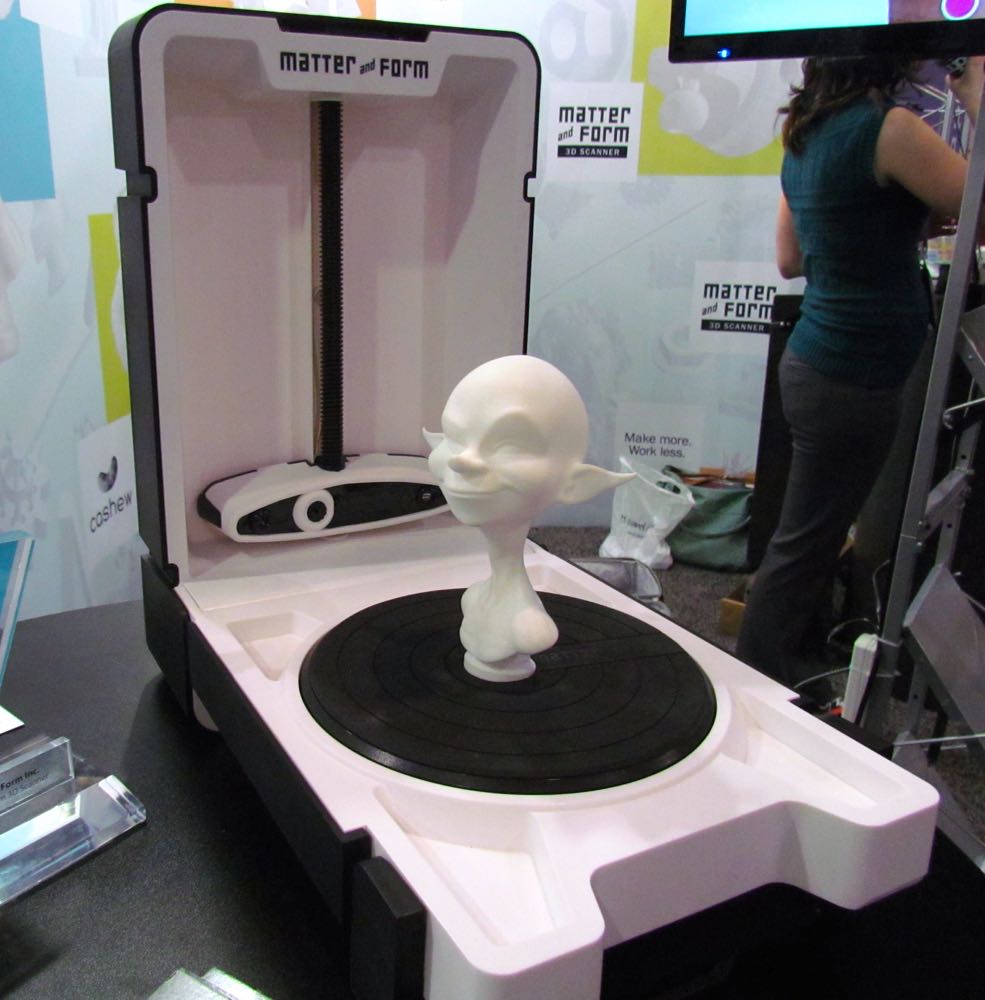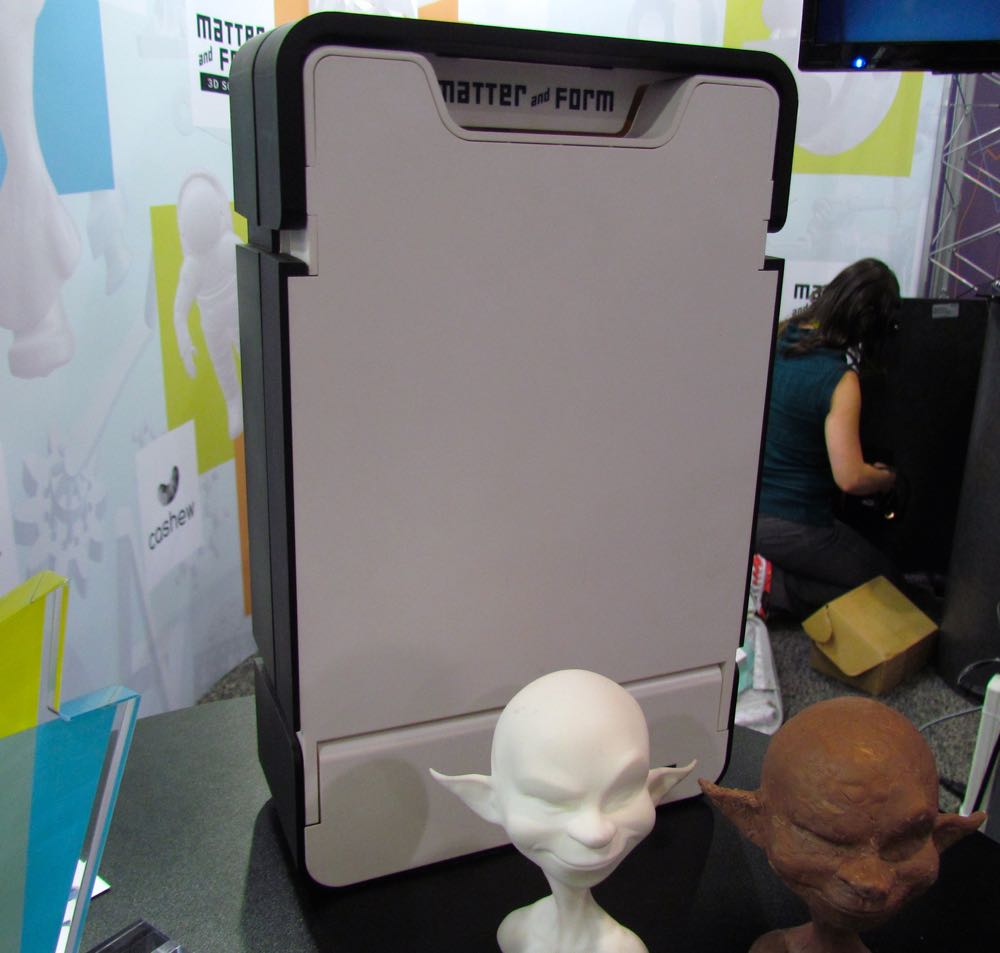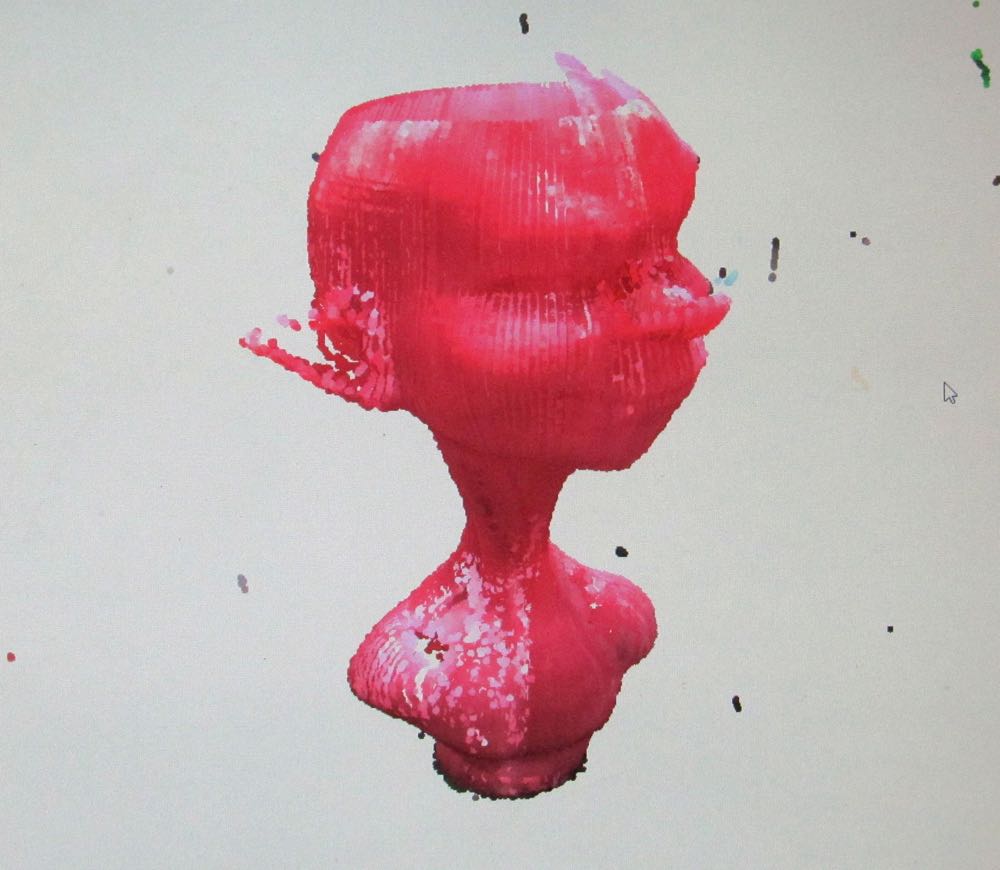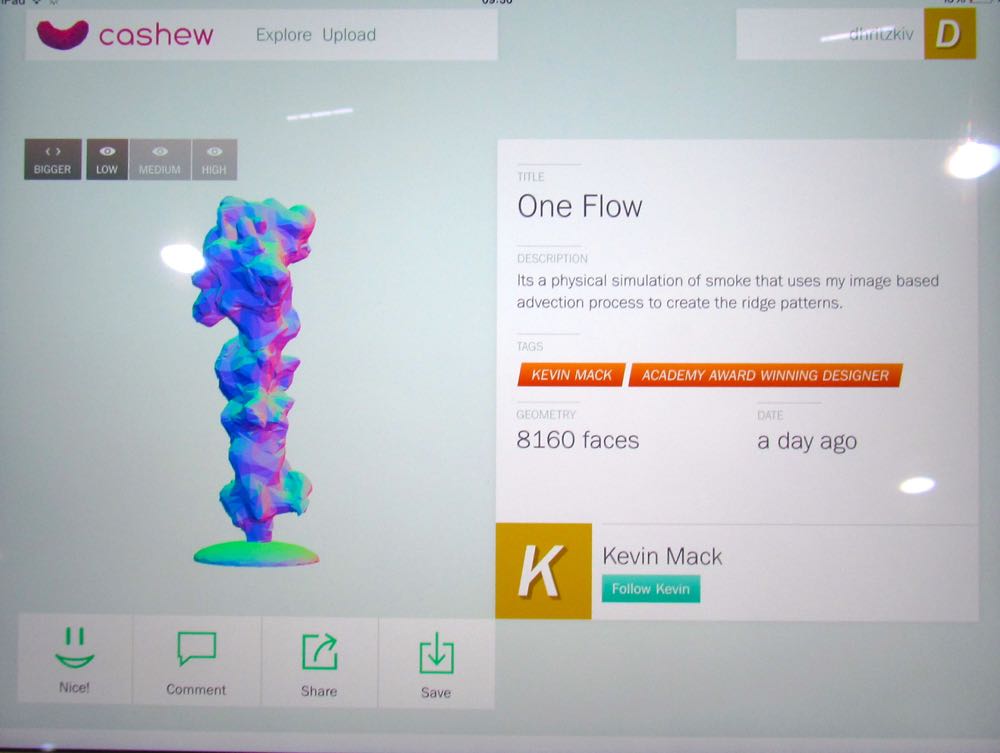
Matter and Form’s 3D scanner remains popular, but the company hopes to do even more.
The Toronto-based company launched their inexpensive tabletop 3D scanner two years ago, after the founder became frustrated with the expense of using industrial 3D scanners. Their team developed a simple tabletop 3D scanner that produced great scans yet was available at a very low price: USD$600. This price point has been around half the price of alternative tabletop 3D scanners.
The scanner, which has been shipping since last August, has a max resolution of 0.25mm and can scan any object that can sit on its 229 x 152mm platform.

One terrific feature of this scanner is its portability. In this image, you can see how the scanner actually folds up into a form suitable for transport. The closed scanner can easily fit into almost any backpack. No, we wouldn’t check it with the luggage, but you get the idea.
The device uses a laser for scanning combined with a HD camera. The scanning process involves raising and lowering the scanning elements on the Z-axis as you can see in the image at top. This enables a complete view of the rotating subject.
For some geometries, it’s necessary to reposition the object to gain a view of hidden portions. Matter and Form’s software permits joining of multiple scans into a single object, thus enabling very complex 3D scans. Their software even cleans up scanned models automatically, making them print-ready in various formats including STL, OBJ, PLY and others.
We were told of an interesting use case involving the scanner: A designer making a sculpture made use of the scanner by creating a traditional clay sculpture with hands, then scanning it with Matter and Form’s 3D scanner. This process was apparently far faster than attempting to create the sculpture solely in a 3D modeling tool like Z-Brush. In fact, the cost of Z-Brush can be higher than buying this scanner!
The company is also working on a new project called, “Cashew”. It’s a kind of social network for 3D scanners, or at least the people using them. The idea is that 3D scans can be easily uploaded for sharing, format conversion and annotation. Links to the scans within Cashew can be embedded elsewhere, taking the content to anywhere on the web. We’re expecting Cashew to launch sometime this spring.
If you’re seeking a tabletop 3D scanner, this could be a good option. If so, you’ll join 6,000 others who’ve already obtained one.
Via Matter and Form



